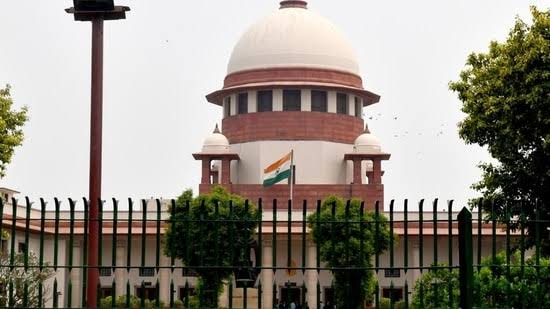In a landmark decision, the Supreme Court on Thursday invalidated the electoral bonds scheme, terming it “unconstitutional”. The ruling was delivered by a five-judge Constitution Bench led by Chief Justice of India DY Chandrachud, putting an end to a contentious method of political funding that has been under scrutiny since its inception.
The Supreme Court directed the issuing bank, State Bank of India (SBI), to cease issuing electoral bonds with immediate effect.
In a landmark decision, the Supreme Court on Thursday invalidated the electoral bonds scheme, terming it “unconstitutional”. The ruling was delivered by a five-judge Constitution Bench led by Chief Justice of India DY Chandrachud, putting an end to a contentious method of political funding that has been under scrutiny since its inception.
“The Supreme Court directed the issuing bank, State Bank of India (SBI), to cease issuing electoral bonds with immediate effect.
The top court has ordered SBI to provide the Election Commission of India (ECI) with detailed records of all electoral bond contributions received by political parties from the scheme’s interim order in 2019 up to the present date.
The ECI is expected to receive comprehensive data from SBI within three weeks. Once the information is collected, the ECI has been instructed by the Supreme Court to publish these details on its official website, ensuring transparency and public access to the information.
“SBI shall furnish the details of donations through electoral bonds and the details of the political parties which received the contributions. SBI shall furnish the details of electoral bonds encashed by the political parties. SBI shall submit the details to the ECI. ECI shall publish these details on the website by March 31, 2024,” said the Chief Justice.



